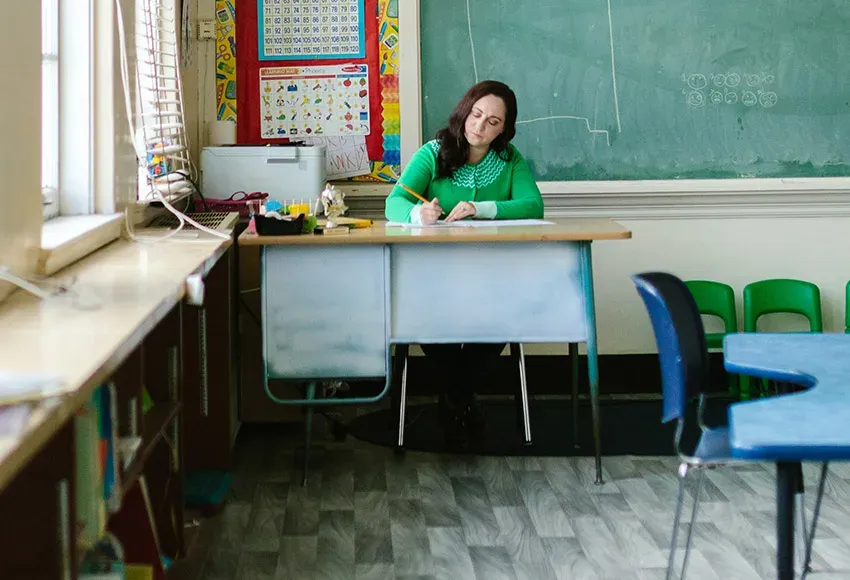Twenty years ago, I decided to become a teacher. I was motivated by two main factors: first was my genuine love for working with kids, and second, I passionately wanted to create a safe space for Queer youth in our public schools, something I never experienced in my own youth.
While attending a graduate teaching program with a stated focus on social justice, I learned about a host of problems in the public school system, including systemic underfunding, the racist school-to-prison pipeline, and white supremacist curricula. Unfortunately, the challenges I would face as a Queer educator were never addressed by my teacher certification program, nor were they in any of the dozens of district-provided professional development offerings I have attended.
On the surface, our educational institutions may appear to be more and more welcoming, perhaps even safe. But this could not be further from the truth. Over my years of teaching in public schools, I have found there to be a number of unique challenges faced by Queer educators, challenges that are often hidden from view, including the following:
• Targeted harassment by students, families, administration, the right wing, social media, and other teachers
• Heteronormative work environments that traumatize and oppress Queer staff
• The classroom closet that teachers are often forced to live in, which provides no actual protection, and the long-term trauma this inflicts
• Zero support for the emotional toll and career risks carried by Queer teachers who attempt to support their Queer students
• The effects of tokenization of Queer people in the school environment, the emotional labor and work load we are often asked to carry, as we are requested (and often expected) to participate in any and all equity initiatives
• School-based equity teams often placing Queer teachers in the spotlight, causing homophobic and transphobic backlash that forces Queer educators to leave their jobs
The truth is, Queer educators exist in a precarious space in our school communities, one that leaves us dangerously open to attack. The discourse around our specific conditions is extremely limited, while the few LGBTQ stories that are highlighted fail to represent the complexity of the obstacles we face. The stories shown most often uplift successes predicated on surface reforms, such as diversity and inclusion initiatives, rainbow stickers, and Pride posters.
Sadly, these reforms have obscured the fact that no structural protections have actually been instituted for Queer teachers.
Together we can challenge this oppressive narrative, by uplifting the authentic and diverse experiences of Queer educators across the country, stories that often intersect with other marginalized identities, including race, class, gender, and disability.
This is a call to action: to highlight the need for systemic changes and radical rethinking, to bravely share the many ways we encounter systemic oppression in our school communities, and to open up a space for discourse that will help to dismantle those systems and continue the work of envisioning a future of Queer liberation.
This is a call for personal essays, poetry, and interviews, intended for a broad audience, of up to five thousand words. The submission deadline is August 1, 2023. Please email me directly at [email protected]


